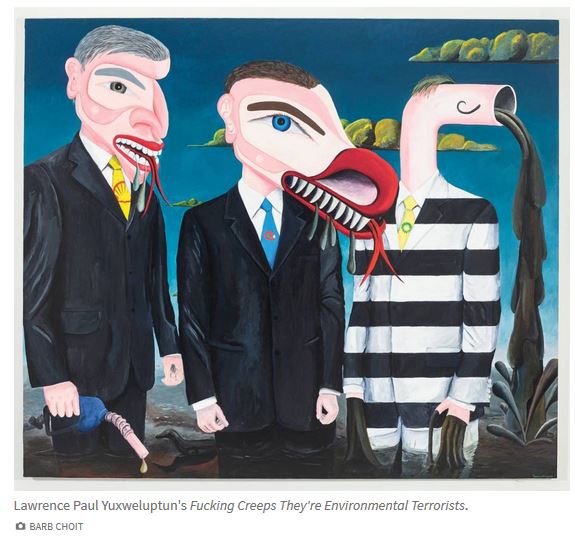Inside the meeting between Mohawks and Canada’s Indigenous services minister, Marc Miller asked Mohawks to temporarily stop demonstrations in Ontario and let trains through by Jorge Barrera, CBC News, Feb 16, 2020
Indigenous Services Minister Marc Miller asked the Mohawks of Tyendinaga to temporarily halt a demonstration that has shut down one of Canada’s most important rail corridors and allow trains through, a leaked recording of the closed-door meeting reveals.
But a phone call from a Wet’suwet’en hereditary chief undercut that request, according to the recording.
The phone call came in the middle of a Saturday meeting between Miller and representatives from Tyendinaga, along with other Mohawk communities, as he sought to find a resolution.
The Mohawks have vowed to keep the railways shut until the RCMP left Wet’suwet’en territory, which faced a multi-day raid by Mounties earlier this month.
The demonstrations have had a wide impact. VIA Rail has cancelled passenger traffic, CN Rail has issued temporary layoff notices, and on Sunday, Prime Minister Justin Trudeau cancelled an international trip, citing “infrastructure disruptions.”
In the midst of Saturday’s meeting, Wet’suwet’en hereditary Chief Woos, who also goes by the name of Frank Alec, was patched through on a speaker phone. He told the room that the RCMP was still on his territory.
“I would suggest to you loud and clear that we want the RCMP out of Gidimt’en territory,” said Woos. An audio recording of part of the meeting was leaked to CBC News by a source who attended.
Tyendinaga Mohawk Territory sits about 240 kilometres west of Ottawa, launched their action in support of Wet’suwet’en hereditary chiefs after they faced a raid from the RCMP earlier this month enforcing a B.C. court injunction.
Miller arrived in Tyendinaga Saturday and met the Mohawks in a ceremonial encounter on the CN train tracks to renew a 17th Century treaty between the Iroqouis and the British Crown known as the Silver Covenant Chain.
Miller then entered a closed-door meeting with 80 people reportedly in attendance. The minister sought to open channels of communication and find a resolution to the standoff on Ontario’s rail lines.
He wanted the Mohawks to allow some trains through during another round of talks, according to the recording, which was provided to CBC News by someone who attended.
“My wish is that we have a temporary draw back and allow the trains to go through,” said Miller.
He was immediately interrupted by a Mohawks resident in attendance, according to the recording.
“Get the red coats out first, get the blue coats out … then we can maybe have some common discussions,” said Mario Baptiste.
Miller said he would then come back to keep the talks going and move toward broader change for Tyendinaga and the rest of the country
“Obviously dealing with the context of the issue … it absolutely needs to be widened,” said Miller, in the recording.
That request was undercut moments later when Woos bolstered the Mohawks’ reasoning behind the rail line demonstration by speakerphone.
Woos told the room that while the RCMP operation was over, the police remained on the territory and continued to pose a threat.
“We want them out of there. We don’t want them there. They have a detachment right in the middle of nowhere, in their eyes. But in our eyes, it’s our territory,” he said.
“We do our traditions out there. We do our trapping and hunting. They are out there with guns, threatening us.”
Woos also said he wanted to “thank the Tyendinaga people” for their support.
Woos did not respond to a request for comment. Neither did Miller’s office.
After the meeting, Miller told reporters he achieved “modest progress” and some of the issues put on the table would be raised with the prime minister and federal cabinet. But the audio recording reveals his main request — that some trains be allowed through — went largely unheeded.
Demonstration near Listuguj First Nation blocks railway traffic
The Mohawks have set up two camps a couple of kilometres apart, along the CN tracks, but have put nothing across the tracks to block the passage of trains. The camps’ proximity to the rails, along with the Mohawks’ message to CN that they did not want any trains going through, was enough to shut down the tracks.
There was a festive atmosphere at both camps around the barrel fires following Miller’s meeting Saturday night, with some saying they were witnessing the start of an Indigenous uprising and revolution.
The Mohawks of Tyendinaga have shut down Hwy 401, one of Canada’s busiest highways, and the CN tracks in the past. This demonstration, however, has become one of the focal points of an evolving potential national crisis that has seen ports, intersections and train tracks blocked across the country.
Blockade continues despite ‘modest progress’ made in talks between federal minister and Tyendinaga Mohawk
Prime Minister Justin Trudeau cancelled an upcoming trip to Barbados as a result of the rail disruptions, which has forced VIA Rail to cancel passenger traffic across the country. CN Rail shut down its Eastern Canadian network and laid off employees as a result of the demonstration that began on Feb. 6.
Feb. 6 was also the day the RCMP launched early morning raids against Wet’suwet’en camps.
The Wet’suwet’en hereditary chiefs opposed the pipeline and said its construction violated their recognized rights over the territory. While several Wet’suwet’en bands signed deals for the project, the hereditary chiefs say they have jurisdiction over the nation’s territory and point to a 1997 Supreme Court decision as supporting their position.
“You had an illegal judge make an illegal injunction,” Tyendinaga Mohawk Kanenhariyo, whose English name is Seth Lefort, told Miller, according to the recording.
“And had the RMCP, the Royal Canadian Mounted Police, militarized police, that are underneath the jurisdiction of the Crown, enter those territories with helicopters and AR-15s [assault rifles] on peaceful people living in their own territory and removed from their own territory.”
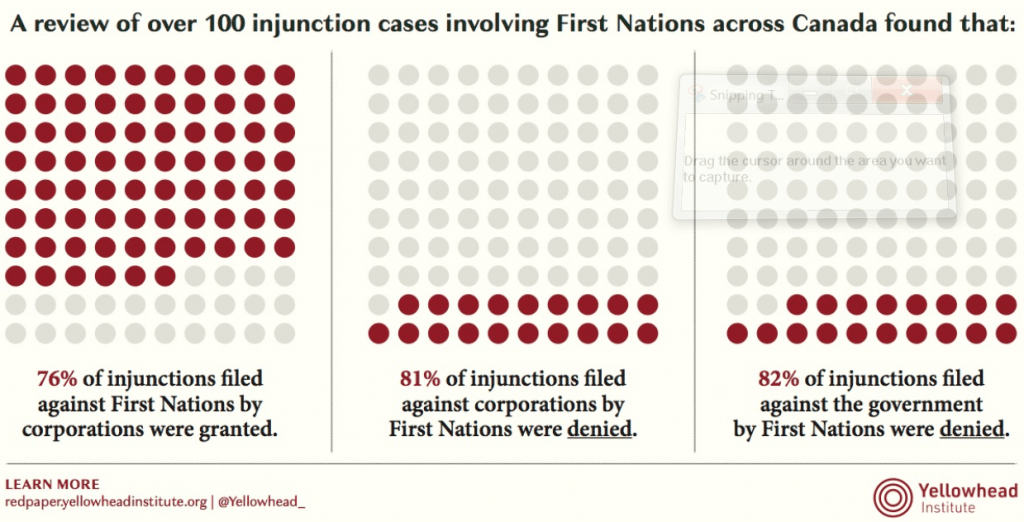
‘An emergency for the Canadian economy’: disruption hurting industries, groups say
Miller said Trudeau and B.C Premier John Horgan had recently designated ministers to sit at a table with the Wet’suwet’en and Gtixsan hereditary chiefs. [Why is Horgan not meeting them the Chiefs? Impossible to have Chief to Chief chat with Horgan missing in action.] The Gitxsan also ended their own blockade of CN rail lines in New Hazelton, B.C., as a result of the agreement.
However, Woos said there were still some serious issues to iron out with the new process and nothing had changed in regards to the RCMP’s presence on his territory.
Miller said these were issues he would take to Trudeau and the federal cabinet.
“I need to go back to the prime minister and clarify exactly what the ask is,” said Miller.
“There is a lot of information that is getting either distorted or not clear…. I will go back to cabinet. I will go back to the prime minister. My understanding is that the Wet’suwe’ten leadership is properly engaged, that they traced a path forward.”
Against this backdrop the clock ticks on an injunction extended by the Ontario Superior Court last Friday.
The Ontario Provincial Police twice visited the main camp on Sunday, which sits on Wyman Road at the edge of the reserve boundary. The second visit was to inform the camp that an OPP plane would now be flying over the area.
Even so, red Mohawk Warrior flags flapped from the raised level rail crossing as masked young men wearing camouflage occasionally gazed through binoculars at the OPP cruisers up the road. [Too fabulous! In 2009, I watched Harper’s anti-terrorist squad (sent to try to intimidate me into silence and dropping my lawsuit) invade my private property through my camera]
Refer also to:
Nikiforuk writes his most powerful: Wet’suwet’en Raids: Canada Chooses Colonialism Again, A future of reconciliation is now squandered along with our billions propping up LNG. AT OVER 46,700 SHARES as of 9:30 am Feb 17, 2020, AND STILL RISING.
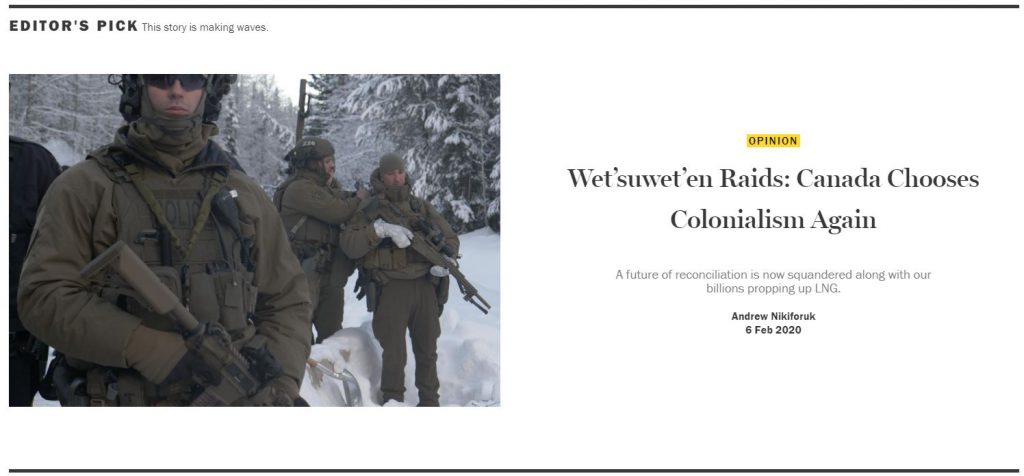
Canadians of all colours are rising strong, saying “NO!” just like the (mostly white people) of Lethbridge did but Kenney didn’t call them a fringe group.
Lawyer Corey Shefman@coreyshefman, Feb 13, 2020:
Remember when “the rule of law” prohibited First Nations from hiring a lawyer to defend their rights?
Remember when “the rule of law” stole Indigenous children from their families and sold (yes, sold) them to settlers?
Remember when “the rule of law” saw Canada systematically break treaty obligation after treaty obligation?
Talk to me about the rule of law when it is applied equitably and justly, not weaponized against Indigenous peoples. #Wetsuweten
EXCELLENT READ: The Wet’suwet’en, Aboriginal Title, and the Rule of Law: An Explainer by Kate Gunn & Bruce McIvor, Feb 13, 2020, First People’s Law
EXCELLENT PHOTOS: Country erupts into Wet’suwet’en solidarity demonstrations: A week in pictures February 15, 2020, APTN National News
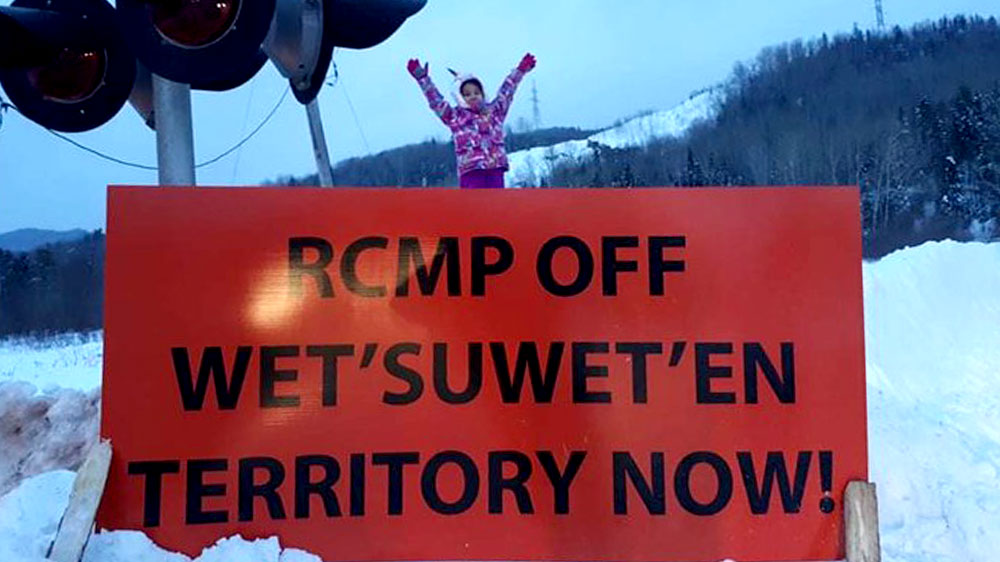
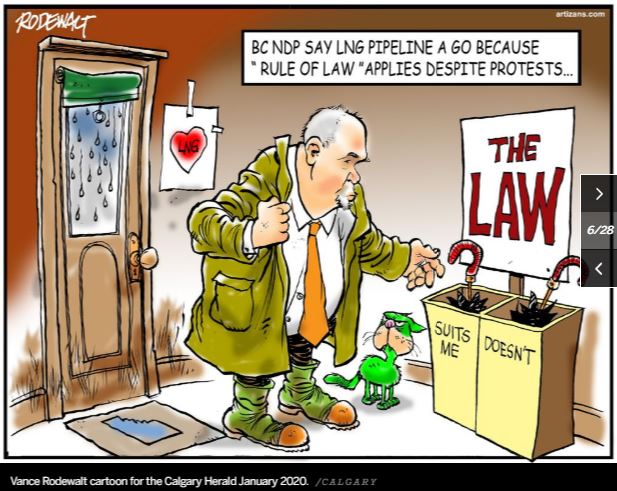
Comment: Whose land? Whose laws? B.C. needs to change its name by Nicholas XEMŦOLTW̱ Claxton and John Price, Feb 12, 2020, Times Colonist
